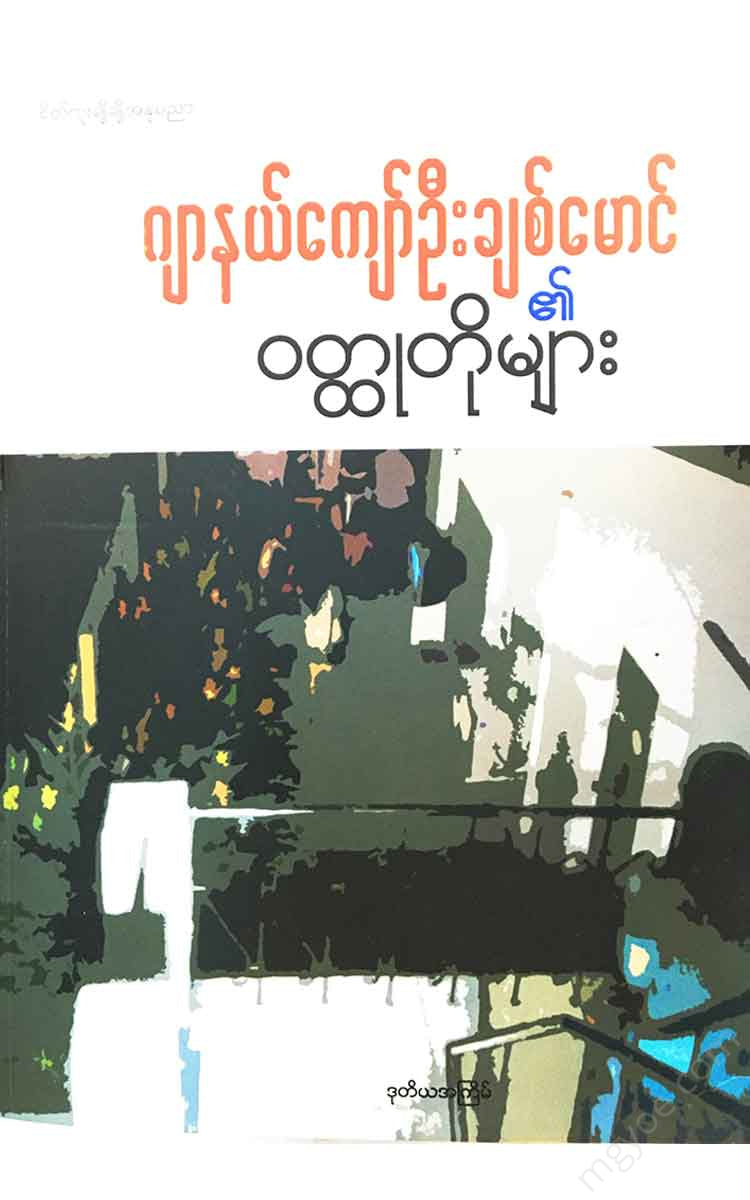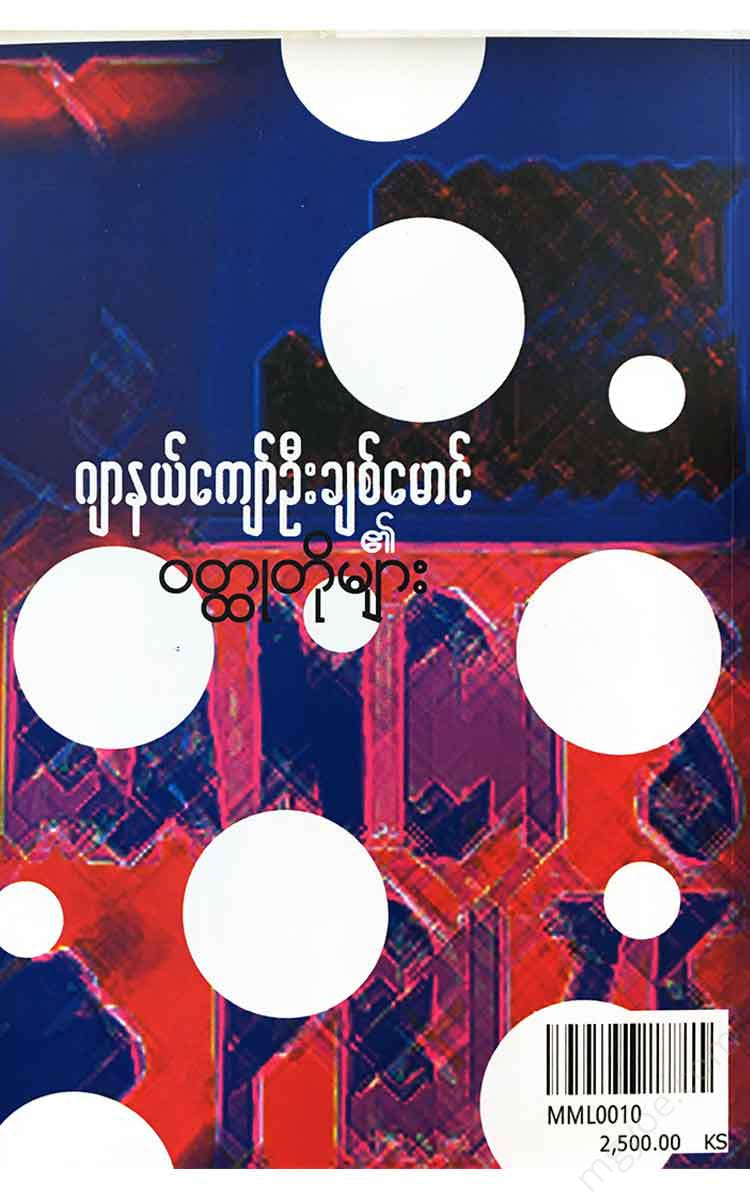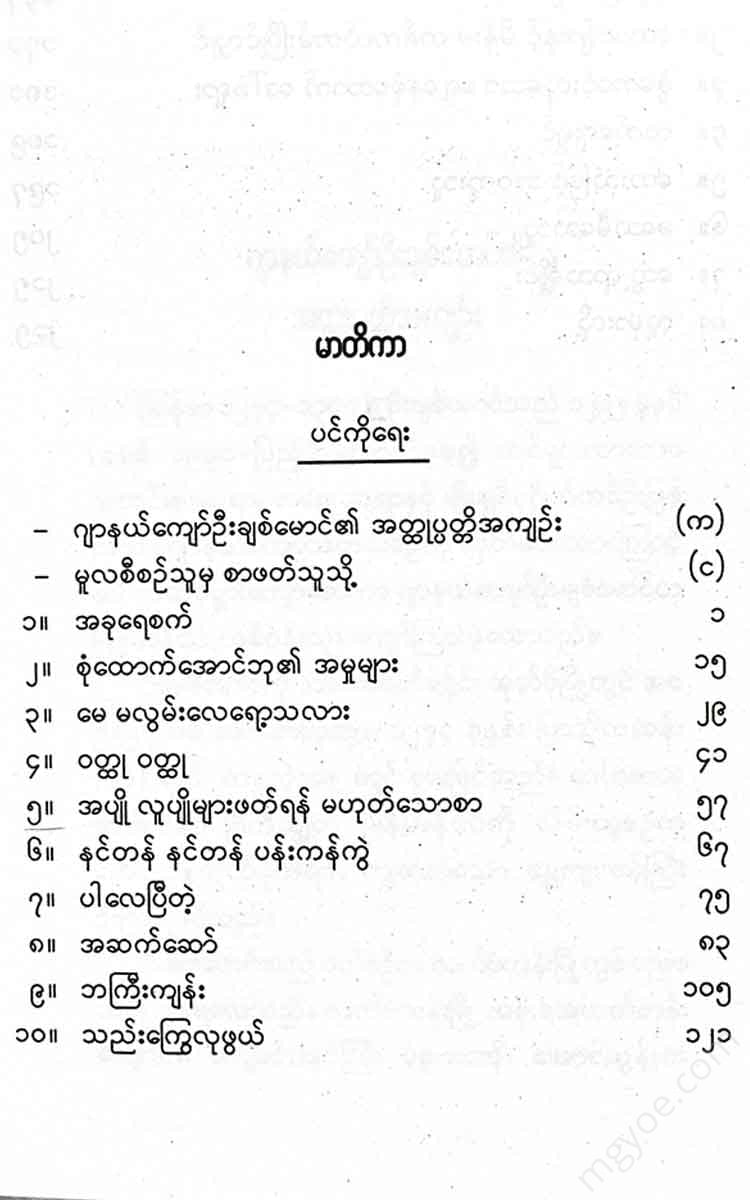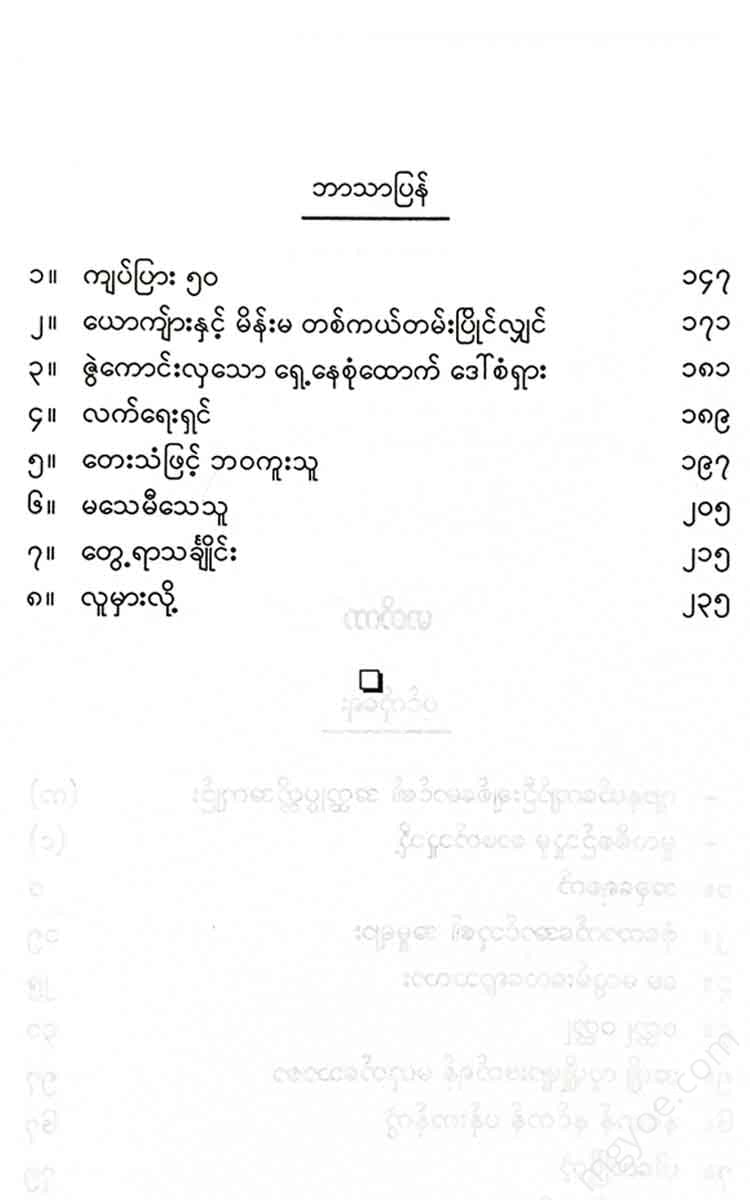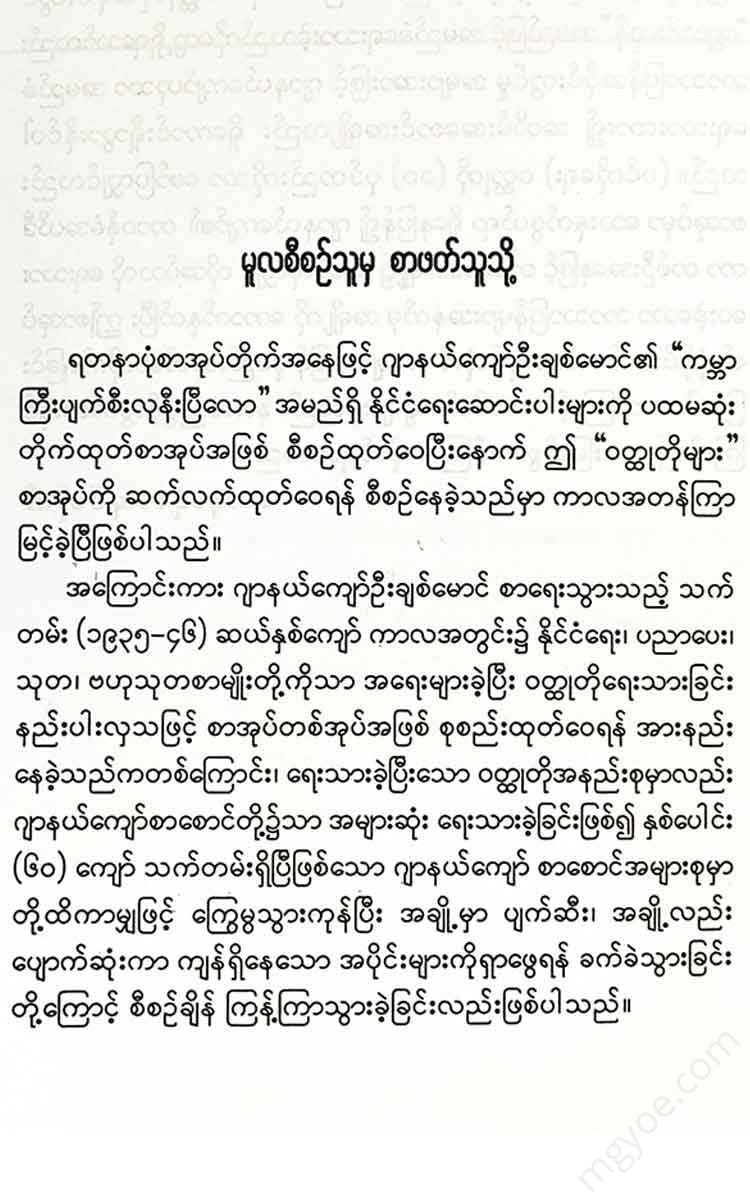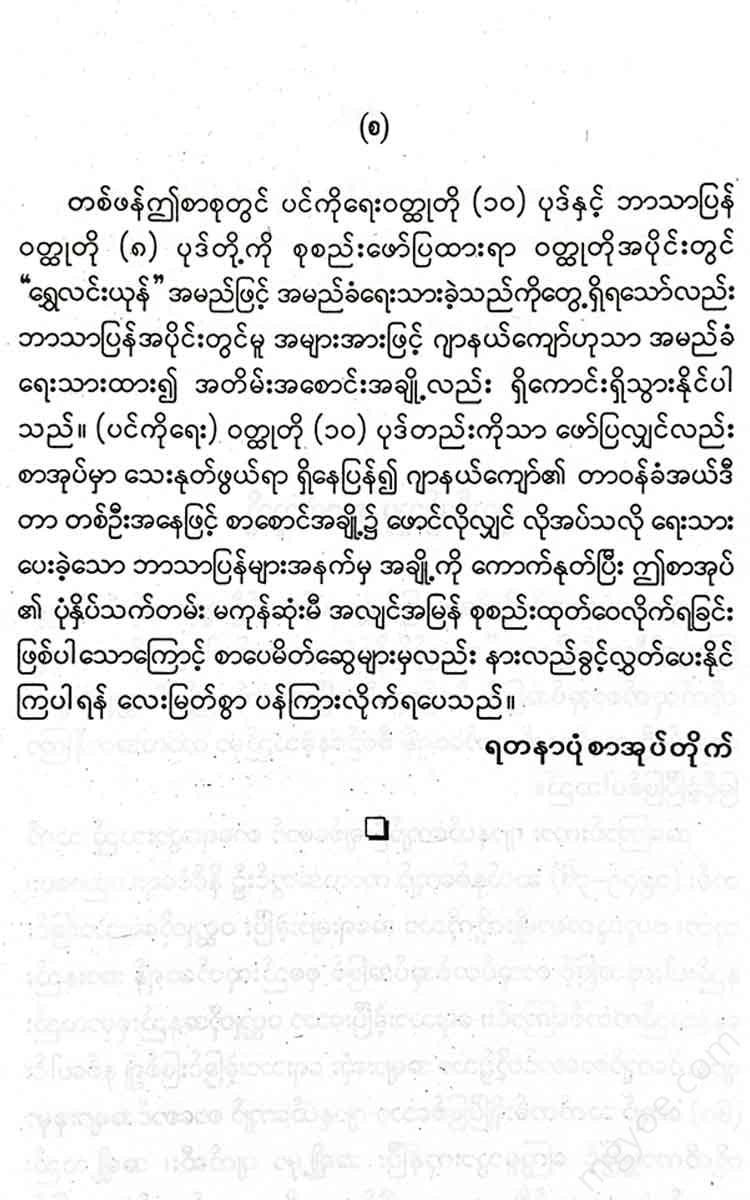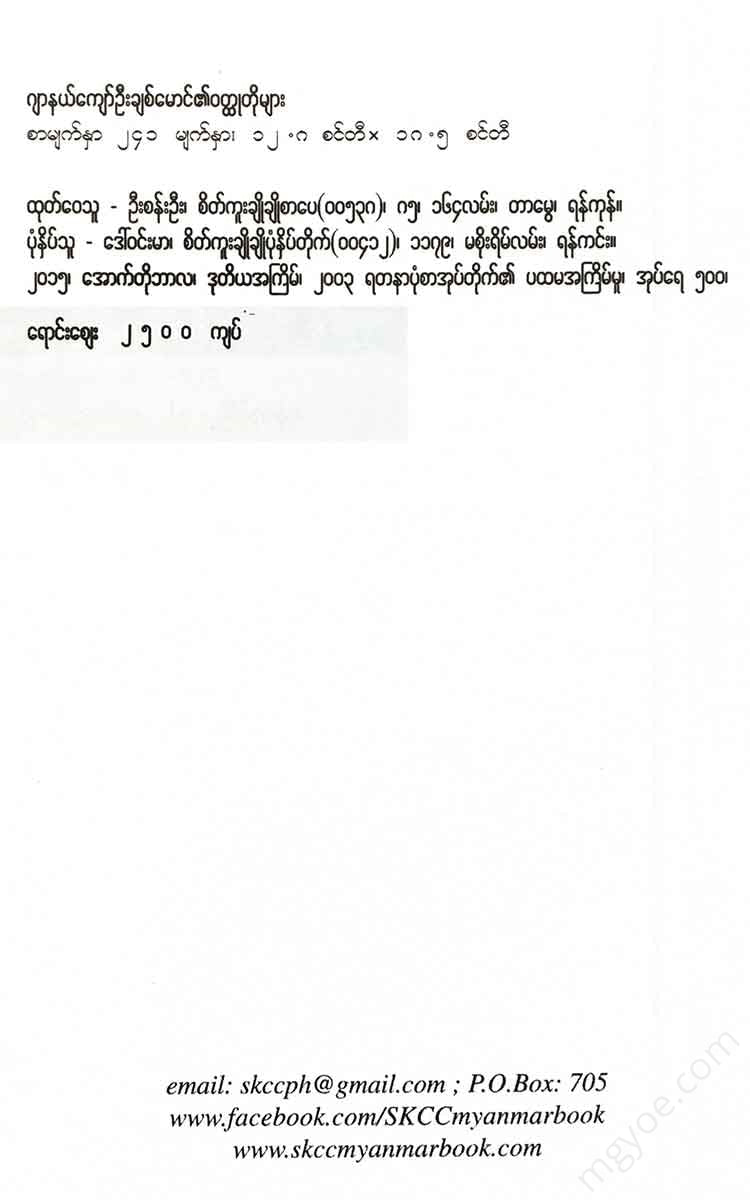စိတ်ကူးချိုချိုစာပေ
Journalist U Chit Maung - Short stories by Journalist U Chit Maung
Journalist U Chit Maung - Short stories by Journalist U Chit Maung
Couldn't load pickup availability
"Your property is in the past, and it is not a good idea," the monk said, giving us a brief and concise order, but I was very dissatisfied with that statement. Since I had always been afraid of the monk since I was young, I was too shy to speak up and say anything, but I was only grumbling in my heart and feeling dissatisfied. When I told Ahn, he said, "Yes, the monk's order is true," and since he was supporting the monk, I was almost disappointed.
In fact, from the moment we met, we became husband and wife, not because of the past, but because of the present. Even Ahn didn't understand this all of a sudden, but only when I told her about it and showed her, did she understand and like it.
To start with, I am the only son of U Ba Min and Daw Hla Moe, the wealthy owners of a rice mill worth 100,000 baht in our town. After graduating from Rangoon University with a BA, I returned to my hometown and lived peacefully in my own house, reading world literature from dawn to midnight. Whenever I had no worries about food, clothing, or shelter, I would read books. Only when my parents urged me to do so would I wander around my yard for a long time, and many times I would forget to walk. For someone who is not careful enough to walk inside the house, it is even more difficult to walk outside the house, walking north and south. I had only been to my parents' rice mill once before I went to university, but not once after I returned from university. Not only my parents, but all my relatives were amazed that I could live so long. "How can I live like this?" they would say.
“When will you get a wife when you are like this?” the aunties kept saying to me. It was funny how the aunties thought that getting a wife was the most important task and not getting a wife was the greatest loss. I smiled a little, thinking to myself. The aunties sometimes invited young women and invited me to come out and entertain them, so that I could meet them. However, I was not too shy, and I did not hesitate to come out and meet them, and I did not dare to talk to them intimately. They spoke only politely with the most stern face, saying, “I will go and study, so don’t be upset.” I got up and went to my room and continued to read.
For these reasons, I was often called “monk,” “homeboy,” and “tame” by my relatives, and they made fun of me. But I didn’t. I never thought of them as the closest people to me. The closest and most intimate people in my life were the books on the desks and the quiet shelves. They opened up the whole world to me in various ways and made me experience different emotions, so living with them was the most peaceful and enjoyable way to live.
But the occasion for another person to intrude into this quiet and friendly circle of friends began when my mother and father, who were on a pilgrimage to the Sagaing Mountains and wanted to observe a long fast, left me completely in charge of everything, leaving me with a retinue of servants. They left only a widowed Daw Gyi Taw and two maids to look after me, and their sole duty was to look after the house and me. My duty was to consult with the manager, the one who was called Pwint, and to manage the machine.
Thaw Pwint lives in the courtyard and the large building inside the factory, guarding and supervising the entire factory. He is someone who understands everything better than I do, and I have been living there for a long time, even knowing what to do.
One day, a stranger urged Daw Gyi to come and check on the machine from time to time, saying that no matter how respectful and honest the work was, it was easy to break it if there was no one to supervise. So she took a walking stick and started walking, as if she were taking an evening walk.
I would later learn that my coming out was to change my peaceful life with books and create something different. If I asked if I was sad, I would have to answer that I was not sad because of the expression on Ahn's face. If I asked if I was happy, I would have seen the faces of the books, big and small, that were waiting for my gentle touch with sadness, and I was anxious to find an answer. However, since I had not finished talking about meeting Ahn, I thought it would be inappropriate to expand on the inseparability that was in my mind.
When I got to the big machine, my steps were directed towards the house where the manager, Toh Pwin, lived. However, I saw a group of women, both young and old, coming out of the house, talking and muttering, so I stopped and looked at them. The women, not even seeing me clearly, became angry and passed by cursing. I didn't dare to ask them, so I thought I would follow them and see, so I followed them without hesitation. I could hear the women cursing Toh Pwin, as if they were not yet full, and I could not bear to hear them.
They were walking towards the water fountain. The water containers were piled up under and next to the water spout. Between the containers, they saw a small woman standing and looking up, holding a water spout. They knew that this must be a water-related issue.
"What's up?" the young woman who was waiting asked, and I could hear her voice so clearly that I couldn't even speak (I had previously thought that all my nerves were working when I read books, but now I realized that some of the dull nerves in my body were still not awake). The waves of that voice quickly penetrated and penetrated my entire body, and I thought that it was playing with my nerves.
"Don't tell me, a dog that will become a prostitute before it dies. Is it a pity that I am opening this water because it is a treasure? If I open it, will the chieftain lose money? A dog, an animal, will come and go. I will go to the village and go away. Don't tell me, I just want to die," said an old woman, holding a tin can while holding it tightly, while holding it tightly. All the other women were picking up the tin cans and pretending to leave. None of them saw me. I followed them, so there was no way to see me. Only the young woman could see me straight on.
The young woman, without picking up the tin can, seemed to be looking at me, as if she was just waiting to see me. Then, suddenly, I saw her emerge from among the women and come swiftly towards me. The echo of her voice seemed to have been echoing and resonating on my nerves until that moment.
